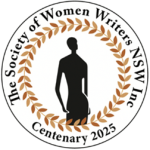Abbie Clancy Award 2026
This Award is named after Abigail Mary Clancy (1898-1984), one of the founders of the Society of Women Writers and a prominent early 20th century journalist. The Abbie Clancy Foundation Trust funds the Award and the Society sponsors its administration. The Award is open to female honours and post-graduate students…
